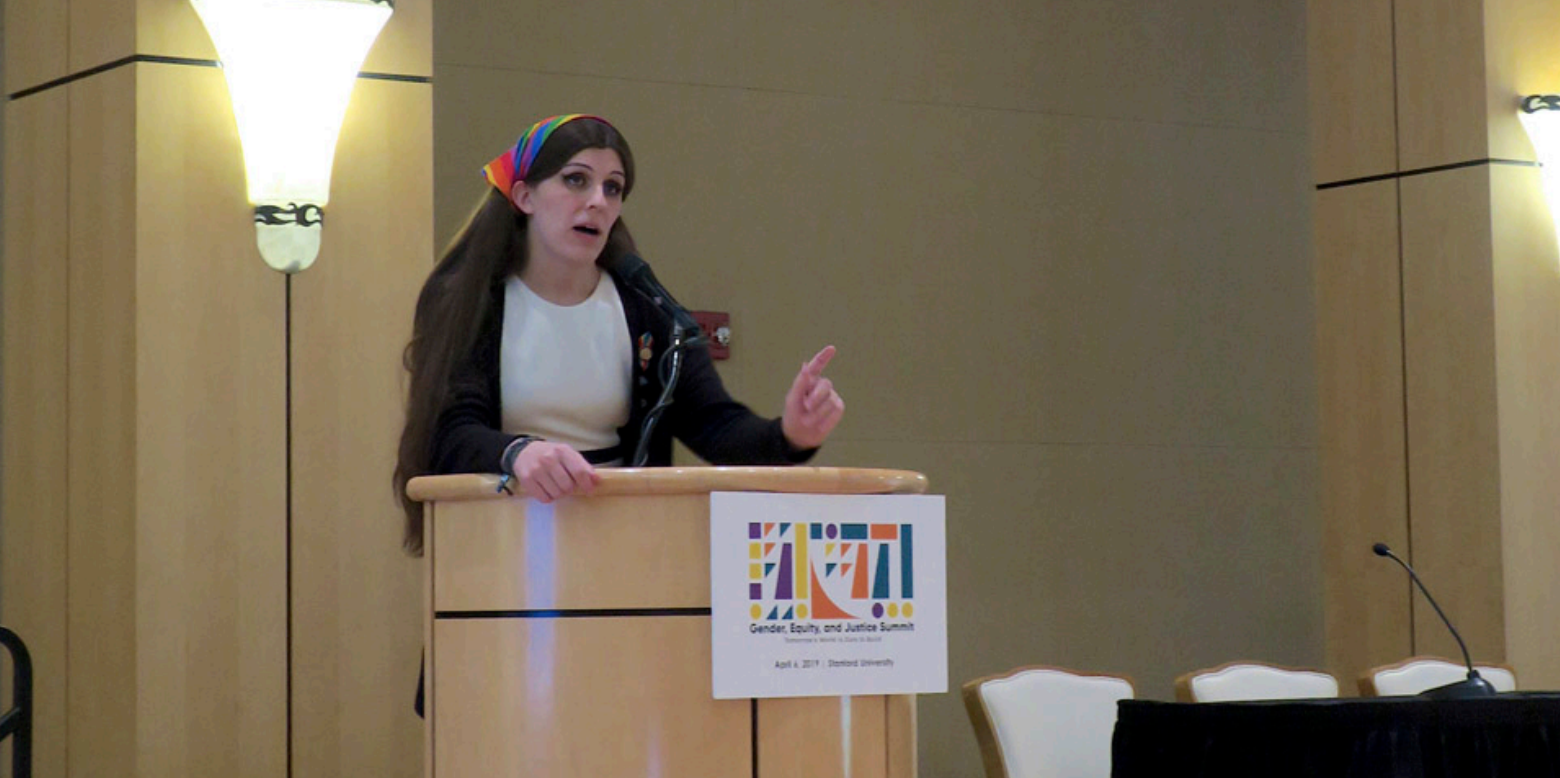“Catholic school teaches you two things,” Delegate Danica Roem quipped at the Women’s Community Center’s (WCC) inaugural Gender, Equity and Justice Summit on Saturday. “Be who you are, and be it well — that’s number one. And number two: Conversion therapy does not work.”
Roem was the keynote speaker at the summit, where she discussed trailblazing her way from unemployment to becoming the first openly transgender person to be elected and serve in a state legislature in the U.S., as well as the dedication to public service that drove her to do so.
Roem’s speech showcased the authenticity that earned her a seat in Virginia’s House of Delegates against a 13-term incumbent. Her rhetorical style, honed by her 10-year career as an award-winning journalist, transcends the boundaries of what one would typically expect of a politician. With clever comedy and the occasional expletive, she spoke with unapologetic candor, which has the effect of teaching the audience they have been taking themselves — and by extension, politics — a little too seriously. Yet, she never glosses over the high stakes of legislating.
“These are f*cking kids,” she said about the systemic problem with school lunch debt in her district. “We should be feeding them.”
She guided her listeners through a story that at times elicited uproarious laughter, at times took off on tangents about esoteric water pipe specifications, but was always eventually tied together with observations that challenged assumptions about what progress and public service look like.
“For me and the other organizers, Danica was both an exciting figure in the world of politics and a champion of service even in its most unexciting forms,” said Phoebe Oathout ’18 M.A. ’19, a WCC staff member. “She’s also been an important public figure for many trans students on campus.”
According to an email advertising the event from WCC staff member Natalie Gable ’19, this year’s summit, titled “Tomorrow’s World is Ours to Build,” aimed to address the central question: “What does it mean to a be a lifelong activist and feminist?”
The summit’s various speakers, from student panelists to Roem herself, stressed both the value of genuinely listening to the viewpoints of others and the importance of unglamorous, day-to-day activism when striving for long-term progress.
For instance, during Roem’s speech, she asked her audience to shout out the names of progressive issues. “Climate change,” someone yelled; “universal healthcare,” proclaimed another — on and on until 15 or 20 issues had been listed. When the audience finally ran out of ideas, Roem pointed out that not one person mentioned transportation — a mundane yet invaluable resource for both household and community economic interests, she said.
She detailed at length how her background as a journalist prepared her for being a state legislator, at one point advising the audience to “elect people who will listen to their community with a pen and paper” and put those ideas into action.
In one striking moment of her speech, Roem set humor aside to acknowledge that she ran a grassroots campaign in which she was fully aware that every single door she knocked on could have been her last. Her doing so pulled into focus that alongside the progress that her success helps to demonstrate, violence against transgender people is an ongoing and pervasive crisis. Furthermore, she recognized that had she been a transgender woman of color, her life expectancy in this country would be 34.
“I’m 34,” she said.
She juxtaposed this somber reality with persistent demonstrations of how embracing the many facets of her identity also allowed her to thrive on the campaign trail.
In one constituent’s backyard, she recounted someone telling her that he was “more worried about [Roem] being in a heavy metal band than her being transgender,” adding that she was pleasantly surprised by the goodwill of some constituents.
“And guess what? Those heavy metal folks knocked on doors for me, and made phone calls,” she said.
Each story in Roem’s speech tied into the theme of embracing –– not suppressing –– one’s unique and individual identity. Wearing her signature rainbow-striped bandana, she concluded by urging her audience to “succeed because of who you are, not despite it.”
Roem made herself available after the keynote address to speak and take photos with attendees.
“She was friendly to everyone, clearly brilliant, and the organizing staff loved having her,” Oathout said. “It was a fangirl dream of mine to get to introduce her.”
Contact Kelly Schulz at schulz19 ‘at’ stanford.edu.
